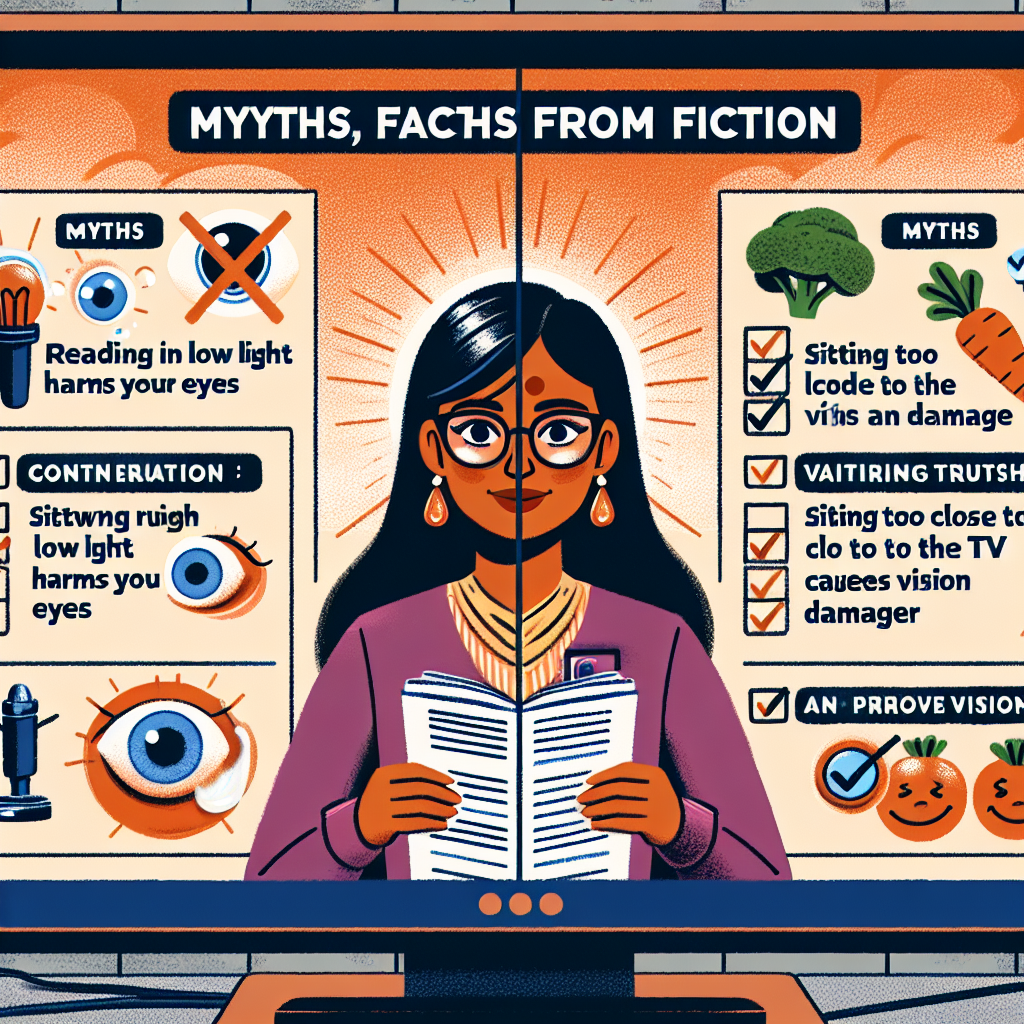When it comes to eye health, there are many myths and misconceptions that can lead to confusion and misinformation. It’s important to separate fact from fiction in order to properly care for your eyes and prevent disease. Let’s debunk some common myths about eye health:
Myth: Eating carrots can cure poor vision
While carrots are a good source of vitamin A, which is essential for eye health, they cannot cure poor vision. Eating a balanced diet rich in fruits and vegetables can help maintain healthy eyes, but it won’t reverse any existing vision problems.
Myth: Staring at a computer screen all day will damage your eyes
While prolonged screen time can cause eye strain and discomfort, it won’t permanently damage your eyes. To reduce strain, make sure to take regular breaks, adjust the brightness and contrast of your screen, and blink frequently to keep your eyes moist.
Myth: Reading in dim light will worsen your vision
Reading in dim light may cause temporary eye strain or fatigue, but it won’t permanently damage your vision. However, it’s important to have adequate lighting when reading or doing close-up work to prevent unnecessary strain on your eyes.
Myth: Eye exercises can improve your vision
While eye exercises may help with certain conditions like lazy eye or crossed eyes, they won’t improve overall vision or correct refractive errors like nearsightedness or farsightedness. If you have concerns about your vision, it’s best to consult with an optometrist or ophthalmologist for proper diagnosis and treatment.
By separating fact from fiction when it comes to eye health, you can better care for your eyes and prevent disease. Remember to eat a healthy diet, protect your eyes from harmful UV rays, and schedule regular eye exams to ensure optimal vision health.
